©Jennifer Britton 2014, All Rights Reserved
Mentoring plays a key role in the development of talent within organizations, and is often overlooked or underutilized. Increasingly organizations are viewing it as an important part of their succession and talent management process, in addition to being a useful approach during onboarding. While many mentoring programs focus on growing the next generation of leaders, mentoring programs can also support career transition across industries and diversity initiatives within organization. Mentoring plays an important role in building relationships across and organization and/or industry.
Throughout the mentoring relationship mentors provide opportunities for the protégé to learn based on real life experiences. A powerful tool for understanding organizational culture. Mentors also help protégés understand really how things get done, and the politics in an organization. Mentors can be a powerful, and positive, person in your network. How might mentoring benefit your organization?
As you start to establish mentoring within your organization and formalize a mentoring process, there are several areas you will want to consider. These include:
Clarify the roles and responsibilities of mentors and mentees/protégés - In successful mentoring relationships expectations are clear. The roles and responsibilities of both the mentor and mentee are discussed at the start of the mentoring conversation. Pairings know who will be initiating meetings, and what type of support each party wants and can provide to the other. Mentoring can benefit from a clearly defined start and end to the process. Early on create expectations round how frequently partners should meet for. As part of the process of mentoring it can be useful to hold a short kick-off session, which may also involve some training and expectation setting for the wider group of mentors and protégés.
Have mentees set the goals - Having two or three specific goal areas in focus helps to structure the mentoring conversation. Mentees should spend time at the start of the process to identify and share with the mentor key areas they would like support in. It will also be useful to have the portage set the agenda each conversation. Some mentors may ask protégés to email focus areas few days before the session, whereas others may be more comfortable addressing the mentees needs in the moment.
The life cycle of the mentoring relationship has several distinct phases. In the first meeting, mentors and mentees will want to share more about their background, and their expectations for mentoring process. At this time is also very useful to identify together when, where and how you will meet. Be clear with each other on what’s going to work best for both of you. Some compromise and flexibility may be required on both of your parts. Another alternative may be to schedule some of your meetings by phone or skype, particularly if you are situated in different offices or geographic locations. Discussion around topics such as confidentiality is also important as the mentor will likely be sharing real examples based on their experience.
As you get to know each other and connections progress, check in around what’s working well with the mentoring relationship and what is not. It is important to be honest and frank with each other, particularly if expectations are not aligned.
As the mentoring relationship comes to a close, build in time to have the mentee identify their learning from the process. We often say that mentoring is a two-way street and hopefully mentors will learn as much from their experience as well. As a mentor, consider what your greatest learning has been throughout your conversations. At the end of a mentoring process in your organization it can be useful to bring mentors and mentees together, even virtually, for the sharing of lessons learned, best practices and other evaluation feedback. This can feed forward into the next cohort of mentoring conversations. Several of the protégés may opt to become a mentor in future program rounds.
Core Skills in the Mentoring Process
There are several skill sets which enhance the mentoring process. As a mentor, lead with core skills such as listening and powerful questions. Mentoring is not just about sharing your experience, it is also about supporting the mentee with new insights and perspectives around their work. Listen closely for what they need. Do not assume you know.
Mentoring is a conversation to support the mentee in also identifying what they know and where they want to go. In asking questions it is often useful to lead with a WHAT? For example, “What’s another perspective around that ?”OR “What did you learn from that experience?”. WHAT questions invite conversation and dialogue, whereas WHY questions may put people on the defensive, and HOW questions often lead us into process and thinking about how things are done.
Other core skills which mentors may use include sharing observations and providing feedback. Sometimes mentees may also want you to be an accountability partner. Others may want to be acknowledged. Ask what they would like from the mentoring process and what role they would like you to play. Finally inquire about the approaches they would like you to incorporate - providing stories, leading you to resources, providing links to best practices.
In closing, successful mentoring partnerships benefit both the mentor and mentee. It is an underutilized approach for growth and development. Consider how you can expand mentoring within your organization or industry.
Enjoy your conversations,
Jennifer
About the Author
Jennifer Britton, MES, PCC, CPT is the founder of Potentials Realized, a performance improvement company focusing on leadership development, teamwork, and coaching skills training. We have designed award winning mentor programs, and provide Mentor Program Support and Training through the Mentor RoadMap ™ . Jennifer is the author of Effective Group Coaching (Wiley, 2009) and From One to Many: Best Practices for Team and Group Coaching (Jossey-Bass, 2013). For more information about mentoring skills training and support contact Jennifer Britton at (416)996-8326. You can visit us online at Potentials Realized.com which includes the Teams365 blog for Leaders, and the MentorRoadMap.com. You can email us at [email protected].
Potentials Realized |Reconnecting Workspaces | Group Coaching Essentials
Team and Leadership Development | Coaching | Retreats
Follow us on Instagram @ReconnectingWorkspaces
Phone: (416)996-8326
Check out my TEDx talk
Looking to bring your workplaces back together, whether you are remote, hybrid, or face-to-face? Pick up a copy of my new book, Reconnecting Workspaces, at Amazon.

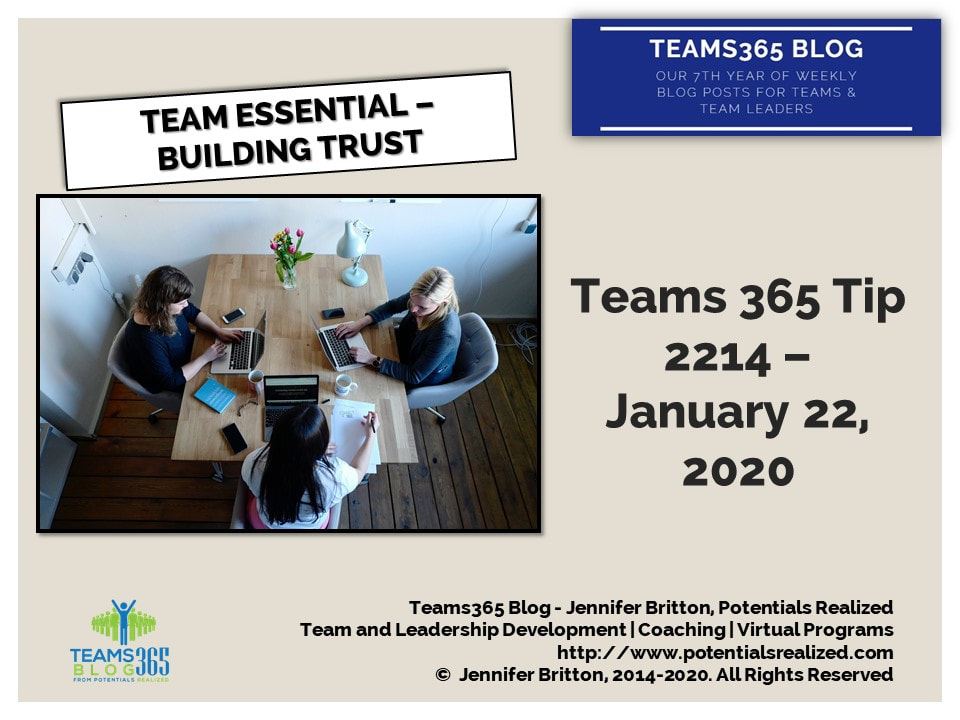
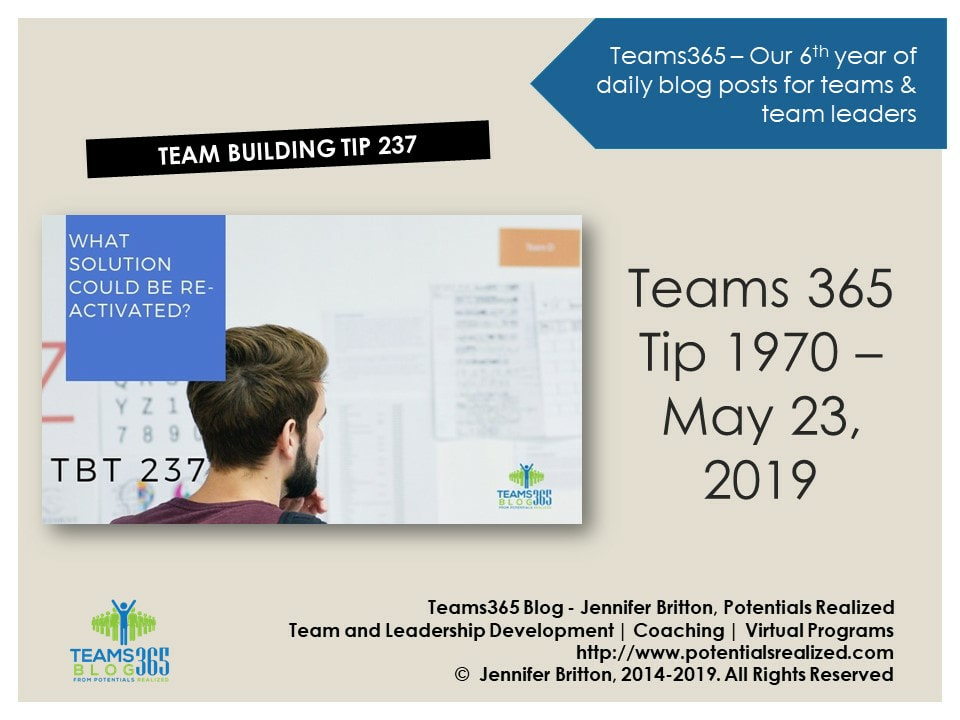
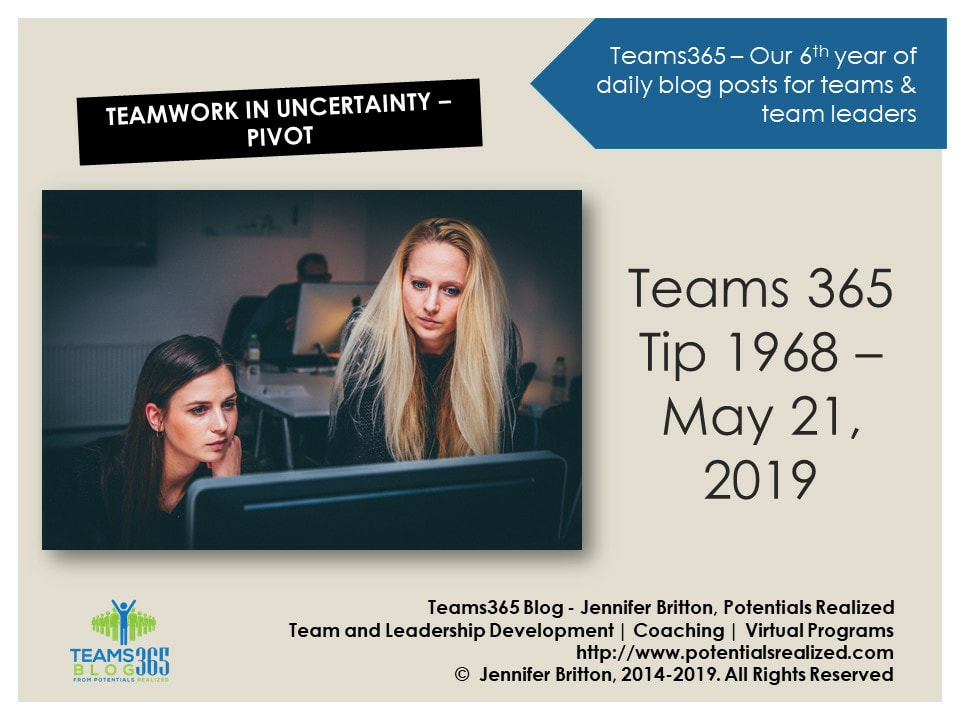
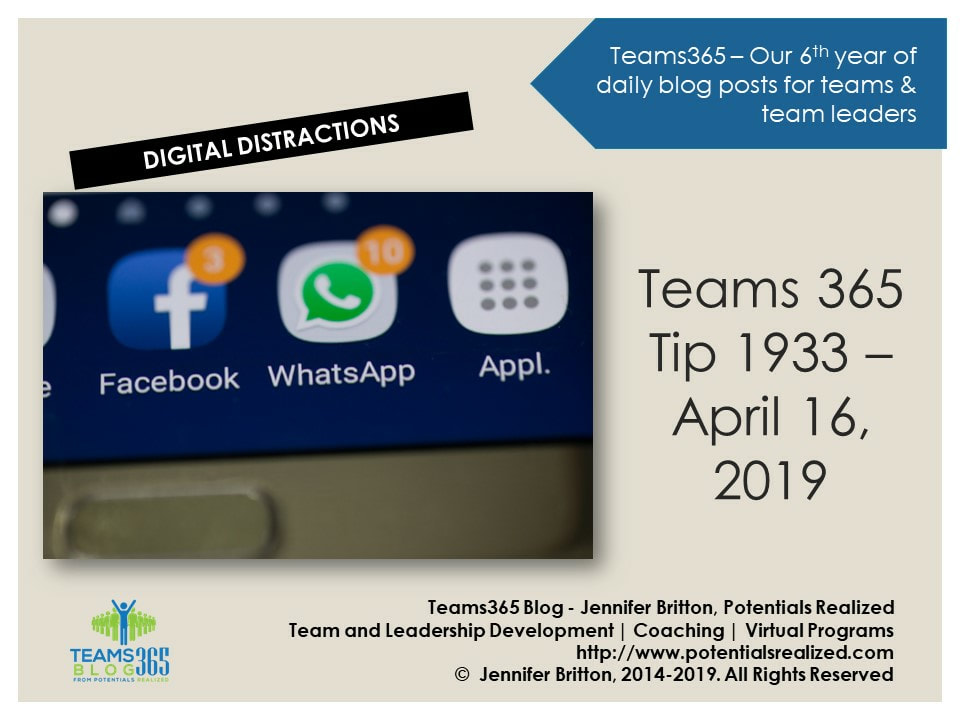
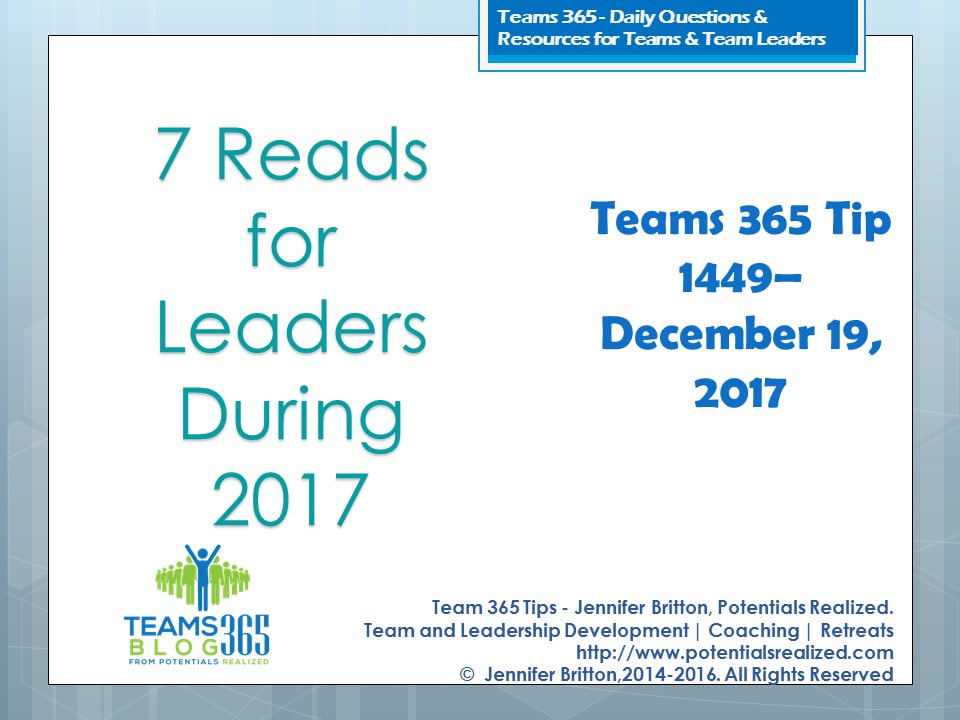
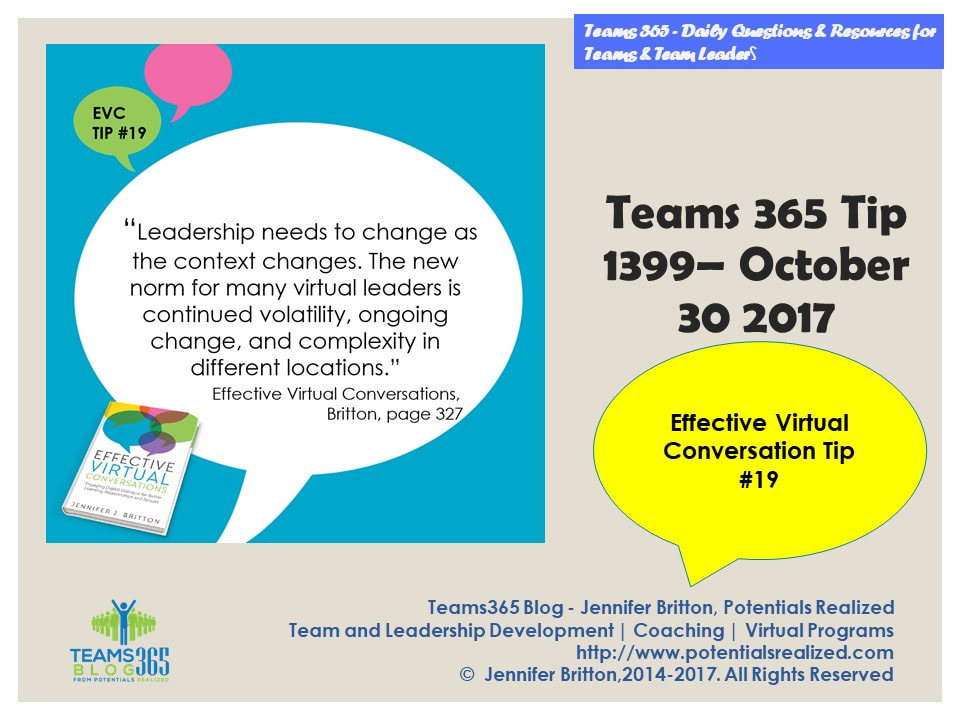
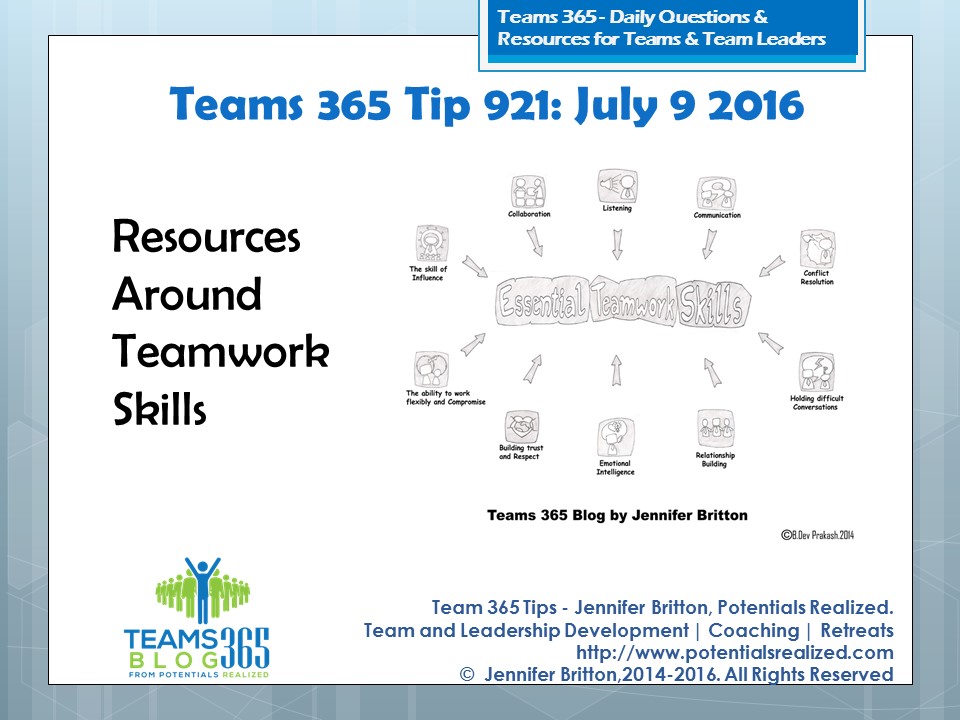
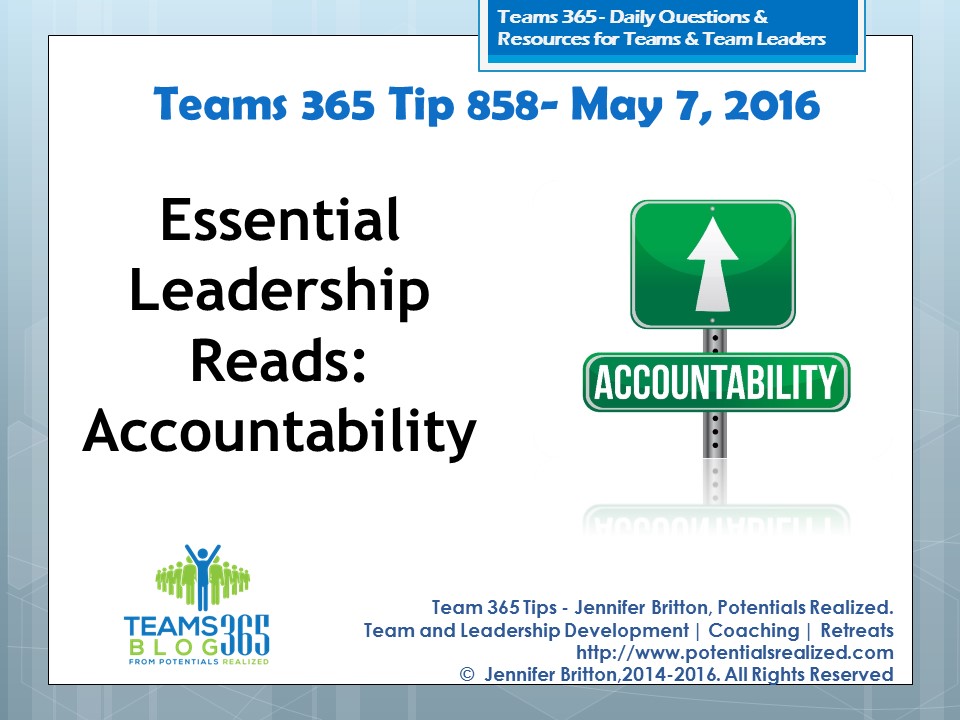
 RSS Feed
RSS Feed





